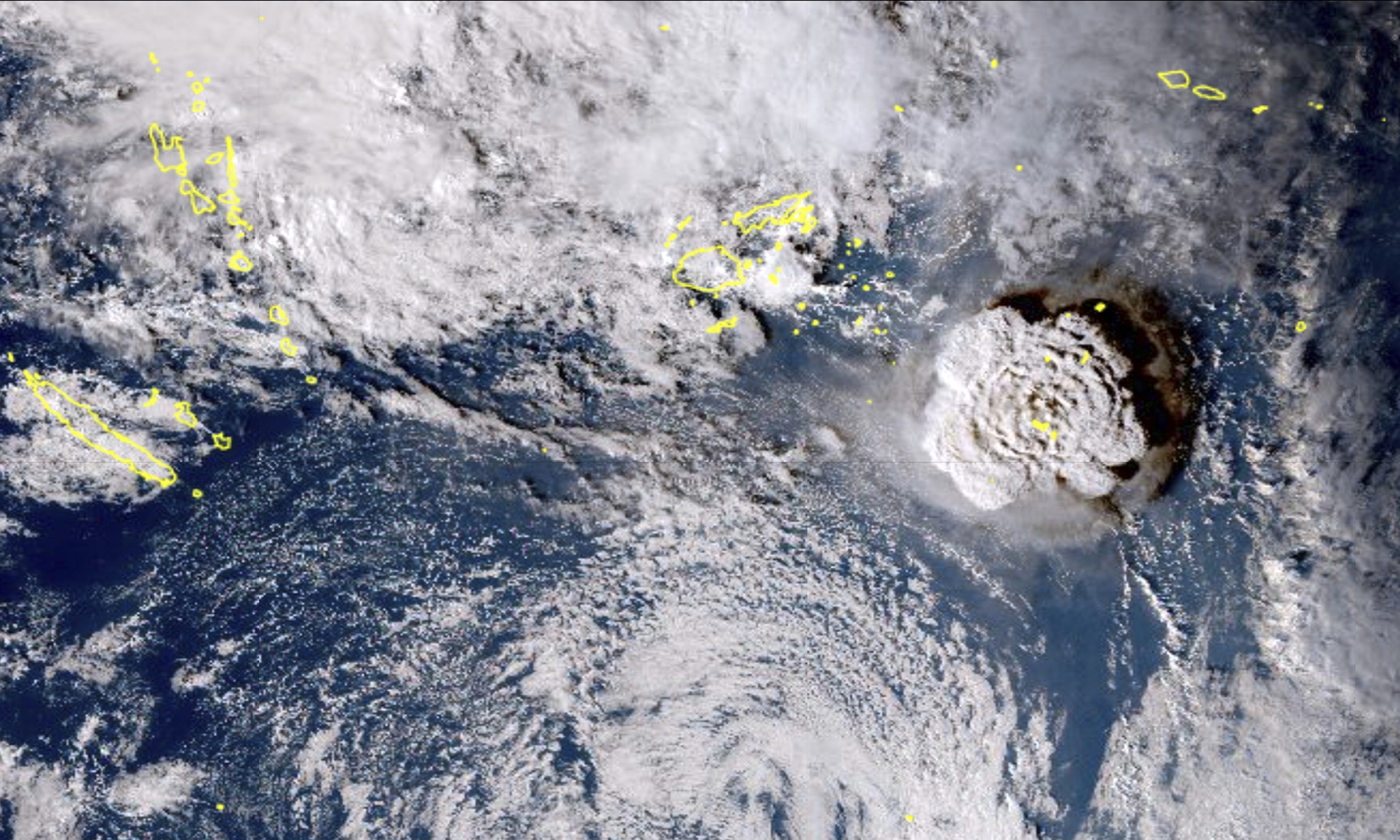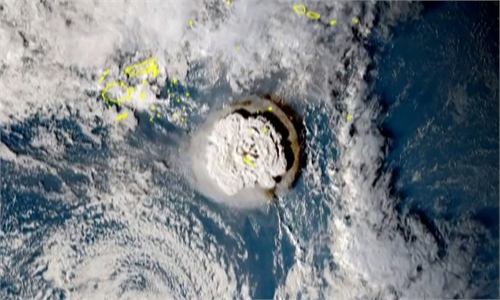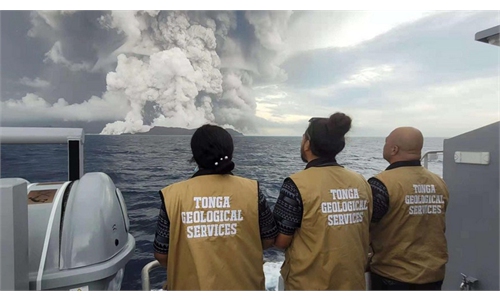
The satellite image taken by Himawari-8, a Japanese weather satellite, and released by the agency, shows an undersea volcano eruption near the Pacific nation of Tonga on January 15, 2022.Photo: VCG
The massive eruption of an underwater volcano off Tonga, which triggered tsunami waves to hit the Pacific island nation and other locations in the Pacific, has become a focus of global headlines.
Tonga is in need of emergency aid, and China said it is willing to help. On Sunday, Chinese Foreign Ministry said that China is ready to provide every possible support and assistance to Tonga.
We hope those who see Tonga as a battlefield with China, such as the US and its allies, could work together with China to provide help to the Pacific island nation.
While the danger of the Tongan volcano erupting again remaining largely unknown, videos posted on social media and various news reports so far suggest that the eruption has caused serious damages to the island nation. For instance, Tonga's submarine cable connectivity to the outside world has been offline since Saturday due to the earthquake caused by the volcanic eruption.
If anything, the natural disaster is expected to have a major impact on infrastructure in Tonga and other neighboring Pacific island nations, where infrastructure construction is largely lagging behind the rest of the world. The shocks, to a certain extent, underlined the vulnerabilities and challenges in infrastructure facilities in those Pacific nations. In fact, it is not the first time for local communication infrastructure to be knocked out by natural disasters or other human factors. For instance, Tonga was cut off from the internet in January 2019 with a rogue ship's anchor severing its undersea cable, according to media reports.
At present, in response to Tonga's request for "immediate aid," a number of countries including New Zealand and Australia have announced they are ready to help.
It is important to note that in addition to providing necessary supplies, China is capable of helping Pacific island nations with their reconstruction work. In fact, in recent years, Chinese companies such as technology giant Huawei have been actively pursuing infrastructure projects in Pacific island nations, of which the construction of submarine fiber optic cables is an important part. In the meantime, Pacific island nations have also shown increasing interests to strengthen trade and economic cooperation with China.
But some Western countries, led by the US, are trying to block such cooperation as they see the Pacific island nations as a place for competing for geopolitical influence and publicly claim to counter China's growing influence in the Pacific. In December, Australia, the US and Japan announced to jointly fund the construction of an undersea cable to boost internet access to three Pacific island countries, a move widely seen by Western media outlets as their attempt to shelve Chinese company's participation in a similar project in the region.
It should be noted that China does not want to compete with any other country for the influence in the region, and the island nations are not the backyard of the US and its allies. Any Cold War mindset is unlikely to win recognition among regional countries.
With China's rise in economic strength, it is a natural development for China to help the Pacific island countries, which cannot be blocked by the US and its allies. It would be a good thing if China's active involvement in the region can be a motivation for the US and its allies to invest more in those Pacific island nations such as Tonga.
Meanwhile, these Pacific island nations don't want to be forced to pick sides between China and the US, they have the right to pursue their own economic development needs despite their geographical challenges.
In this sense, China won't be deterred by US pressure when it comes to developing economic ties with Pacific island nations, and it will continue to back Chinese companies' participation in local infrastructure projects in order to help those island countries' economic development. Instead of countering the US, China is really eyeing to help Pacific island nations' economies through investing in their infrastructure projects and expanding trade links.



